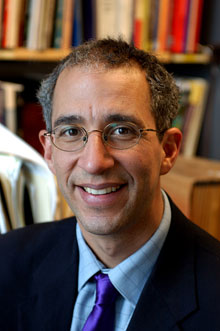State Policies Decrease Youth Smoking, Drinking and Sex
State policies, such as taxing the sale of cigarettes and alcohol, decrease teenage smoking and drinking, according to researchers at the Johns Hopkins Bloomberg School of Public Health. The researchers also found a correlation between an increased availability of family planning clinics and a decrease in teen sexual intercourse. The study results suggest that state and local legislatures can help teenagers make decisions to avoid unhealthy behaviors by implementing laws to make cigarettes and beer more difficult to obtain and increase the number of family planning clinics. The study is published in the February 2005 issue of Preventive Medicine.
“We found that taxes on cigarettes and beer, tobacco vending machine restrictions and more family planning clinics influenced the behavior of teenagers. However, we want to caution that state policies are neither the only nor the most important influence on risky behaviors by teens. Other factors, such as parental involvement, may have been taking place outside of our study,” said David M. Bishai, MD, MPH, PhD, lead author of the study and an associate professor in the Bloomberg School of Public Health’s Department of Population and Family Health Sciences.
The Hopkins researchers used teen responses to the 1995 Youth Risk Behavior Survey, which was conducted by 20 U.S. states and cities. They analyzed the survey results with respect to the various states' prices for beer, wine and spirits; tobacco taxes; and the presence or absence of state laws on access to tobacco vending machines and of family planning clinics.
They found that teens were 1.9 percent less likely to smoke and drink when cigarette and alcohol taxes were higher. Among the regions surveyed, the researchers report that doubling the number of communities with laws that prohibit teenagers’ access to cigarette vending machines, would lower teen smoking by 9 percent. In addition, a 10 percent increase in the number of family planning clinics in a community would lead to a 1.3 percent reduction in unsafe sex among teens.

David M. Bishai, MD, MPH, PhD
“It is clear from our study that broader legislation at the state and city levels contributes to helping youth decide not to engage in smoking, drinking and sexual intercourse. It is also interesting to note that, contrary to the thought that access to a family planning clinic increases sexual behavior, our study found the opposite—family planning clinics do not make kids have more sex,” said Dr. Bishai.
The authors report in their study that further research is needed to examine the effects of state and local laws and to explore whether the societal factors that contribute to the passage of such state legislation are correlated with better parenting or healthier teen culture.
The study was supported by a grant from the Johns Hopkins Bloomberg School of Public Health Faculty Innovation Fund.
Co-authors of the study from the Johns Hopkins Bloomberg School of Public Health are Dan Mercer and Athena Tapales, PhD.
Public Affairs media contacts for the Johns Hopkins Bloomberg School of Public Health: Kenna Lowe or Tim Parsons at 410-955-6878 or paffairs@jhsph.edu.